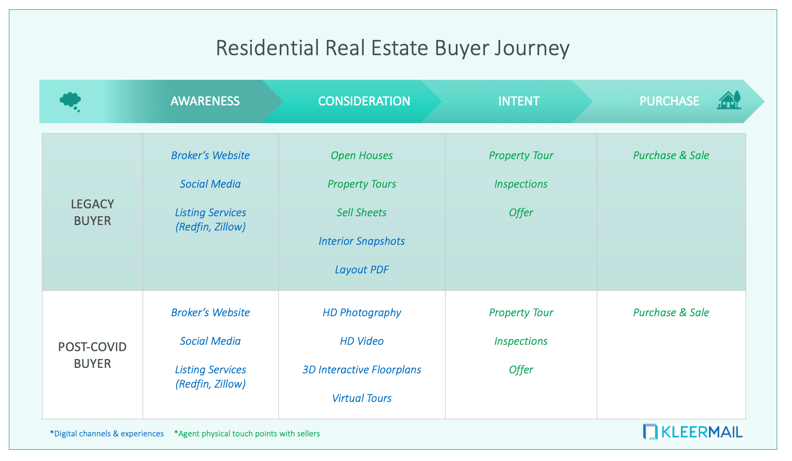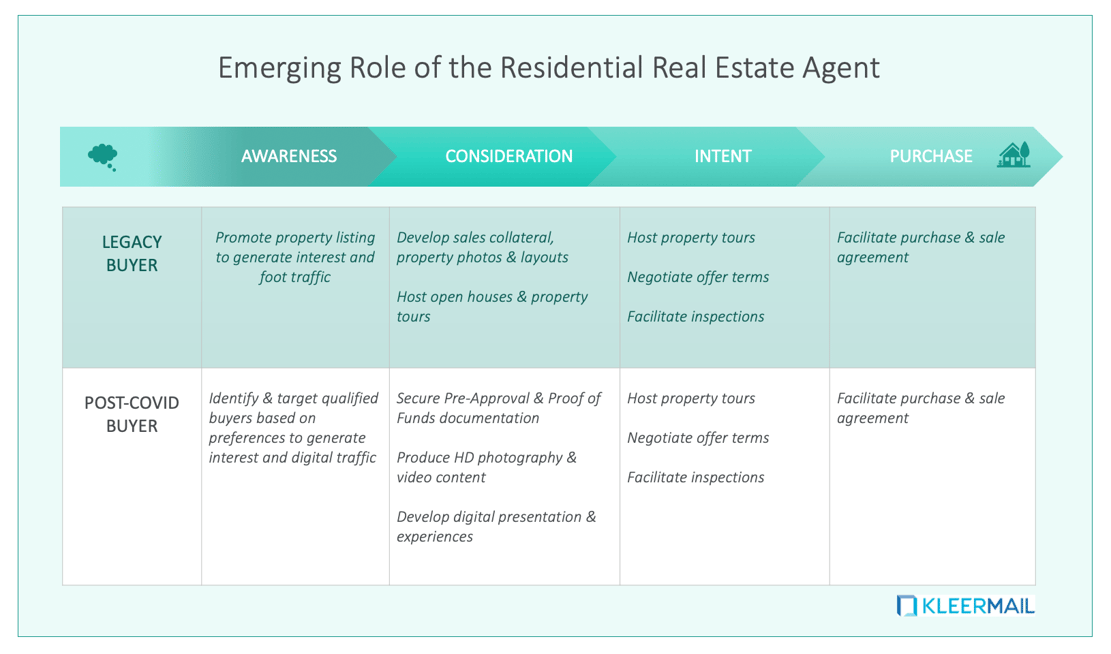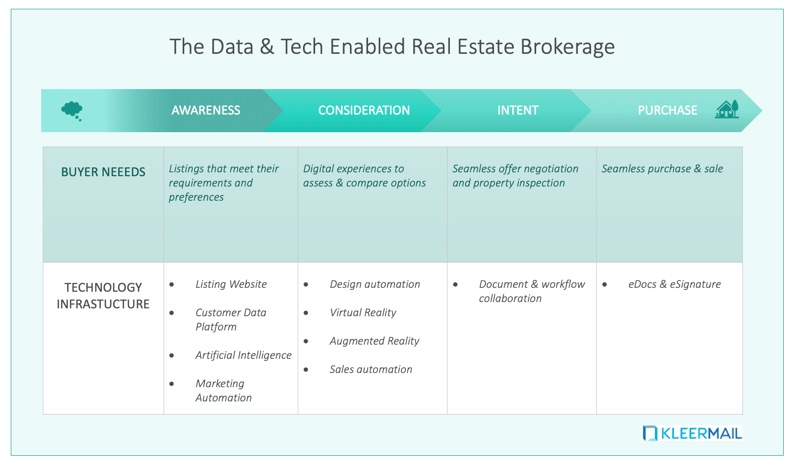In the rapidly evolving marketing landscape, it's impossible to ignore the meteoric rise of mobile marketing. The power of mobile devices in today's world is reshaping the way businesses connect with ...
Read More »From Penthouses to Picket Fences: How the Post-COVID Consumer is Changing the Way Homes are Bought & Sold

In the post-COVID world “the home” has taken on an entirely new level of criticality in our lives. The pandemic is not only changing what people want in a house. It is hastening an ongoing trend that is fundamentally altering the way they buy and sell their properties and redefining the role of the real estate broker in the process.
Psychologically, our homes are sacred spaces that reflect our values and lifestyle. Places of sanctuary and safety, qualities that have been in high demand lately.
Social distancing has created new, practical demands on housing. Our home is no longer just the place where we hang our hat at the end of each day. It is the place where we work, shop, exercise, educate our children, and escape from long lines and face masks.
No More Open Houses
The impact of COVID to residential real estate was immediate and dramatic. Stay-at-home orders put severe restrictions on property tours and, to the delight of many sellers, eliminated open houses leaving agents scrambling for ways to promote properties digitally.
Often the domain of nosy neighbors and looky-loos, there is, perhaps, no more anxiety inducing part of the sales process than the “open house”. It is dreaded by sellers, who fear strangers stomping around their living room, and derided by best-in-class agents because it impedes their ability to qualify buyers, assess their needs, and properly showcase a property.
According to Allison Mazer, Senior Vice President at Compass, a market-leading real estate brokerage company, healthcare concerns are taking center stage with both buyers and sellers who are using photos and virtual tours to replace property visits. “New buyers would typically schedule a day full of showings at a number of properties. Today, they are highly selective and only tour properties that they know meet their requirements.” Sellers are also increasingly selective about who they will allow into their homes often requiring pre-approvals or proof-of-funds before they will schedule a private showing.
Mazer says that off-market or “pocket listings” have nearly doubled over the past two months, especially at the high-end of the market, as sellers look to mitigate disruptions to their home lives or market their properties more discreetly. “Executives in this climate are very concerned with discretion because the sale of a residence could send signals to the market about the stability of their businesses.” This is creating new private networks like The Pocket Listing Service, a membership-based listing service that gives agents the ability to market properties to other brokers rather than the general public.
All of this brings into focus an already growing trend that buying and selling a home is becoming much more digital.
“Videos and virtual tours are replacing photos and floor plans as buyers prioritize digital experiences to help them move through the awareness and consideration phases of the buying process. Because of this, the digital presentation of the property is replacing the traditional open house or property tour as the most impactful touchpoint with a prospective buyer,” says Mazer. As a result, buyers are coming to their first tour fully-educated and ready to buy. She estimates that nearly 50% of property listings with a robust digital presentation receive qualified offers from buyers on their first visit to a property.

The availability of digital resources also means that buyers are waiting until later in the buying process to engage an agent. According to the National Association of Realtors, 93% of home buyers utilize online resources in their home search, and less than 17% contact a real estate agent as their first step in the home buying process.
Buyers are becoming more aware that dealing directly with a listing agent can give them additional leverage when negotiating terms. As the capabilities of digital resources continue to grow buyers will go direct to the listing agent, eliminating the commission split with a buyer's agent.
Discerning sellers are measuring success with a different yard stick in response. They now expect fast and frictionless transactions and are judging the effectiveness of agents based on their ability to generate qualified leads and offers, not just foot traffic and social media likes.
From Agent to Digital Marketer & Lifestyle Guru
Successful real estate agents are able to assess and rank the features of a property and align them with the requirements of a prospective buyer. Historically, this meant that a seller’s success was largely tied to the experience of their listing agent and quality of their network.
Now, a new crop of innovative real estate brokerage companies is redefining the agent’s role in the sales process and elevating their capabilities with proprietary data science tools and Madison Avenue-like creative and design resources. This is giving agents the ability to rapidly create high-quality marketing collateral and digital experiences as well as target potential buyers based on their preferences and behaviors.
Armed with these tools, agents have become a blend of digital marketer and lifestyle guru responsible for identifying qualified buyers and personalizing their sales strategies to meet a buyer’s needs, wants, and aspirations.

The Rise of the Tech-Enabled Real Estate Brokerage Company
Real estate brokerage companies have struggled for years to differentiate themselves. The National Realtor Association reports that over 80% of sellers hire an agent based on referral or word-of-mouth. As digital real estate selling continues to mature, innovators who have invested in data science, artificial intelligence, digital experiences, and marketing and sales automation will be able to deliver their clients more seamless transactions and shorter sales cycles, giving them a significant competitive advantage over legacy players.
These capabilities are resonating with tech and finance savvy sellers, especially at the high-end of the market, and helping agents win new listings. Next generation real estate platforms pave the road to an offer from a qualified buyer with technology that supports buyers at each phase of their journey.
Customer data platforms (“CDP’s”) allow firms to aggregate, store, and model prospective buyers based on their preferences and behaviors. Artificial intelligence can then be applied to these data to improve search, saving buyers time during the awareness phase by providing them with more curated listings based on their preferences, not just price and property features.
Modeling customer data also gives agents the ability to proactively identify and target customer segments whose preferences align with the property features of their listings. The real estate brokerage company Compass provides their agents with access to a proprietary data tool called “Wealth-X”, which claims to contain the largest database of ultra-high net worth individuals in the world. Tools like this give agents access to a global network of qualified leads and, when combined with marketing automation, give agents the ability to generate and distribute personalized content to these prospective buyers based on their needs, wants, and aspirations.

Next generation real estate platforms support buyers through the consideration phase through fully immersive virtual and augmented reality experiences. These digital experiences deepen a potential buyer’s emotional connection to a property delivering more highly qualified leads to agents and shorter sales cycles for sellers.
Wins for Buyers & Sellers
The disruptions of COVID are creating changes to the way homes are bought and sold and urgency for legacy real estate brokerage companies to develop and adopt tech-enabled sales and marketing models. The good news is that these innovations create wins for both buyers and sellers by reducing search time for buyers and creating faster, more seamless transactions for sellers.





